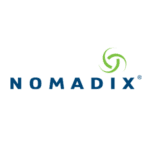It’s no secret that the COVID-19 pandemic has forced many changes across the hospitality sector, eliminating numerous time-honored traditions, and as such, the experience of visiting a hotel greatly differs from just a year ago. Customary practices like standing in line to check-in at the front desk or even dining in hotel restaurants have changed due to social distancing regulations, and now hotel organizations, big and small, are adjusting accordingly with new tools and processes to match the new normal.
Even before COVID-19, the travel and hospitality industry were on the cusp of transformation. Organizations were beginning to test smart technology to help improve the travel experience. But COVID-19 restrictions have unleashed the need for vast changes that includes automating such hotel processes as check-in, dining, guest amenities, cleaning – and even how hotels are marketing to guests.
Automating the hotel experience – touchless check in and smart room amenities
The new world of “no touch” and seamless check-in is not a natural fit for hotels in an industry that has always taken great pride in the ability to offer unmatchable customer service – usually face to face. COVID-19 has changed that and in order to adequately respond to guests’ needs, many hotel organizations have developed all-inclusive smartphone apps. These apps are the new gateway to a virtual front desk or concierge, allowing the guest to check in with their smartphones and utilize the device as a room key as well – without having to interact with a single human.
In addition to smart phone apps, hotels are now utilizing voice assistants such as Amazon’s Alexa and Google Assistant to help guests operate features in their hotel rooms like controlling the lights, the curtains and operating the television. Last summer, Google Assistant unveiled a hospitality application for Google Nest Hub, and rolled it out in high-end hotels like the Gansevoort in New York City, and the Fairmont Scottsdale Princess in Arizona.
Joining the subscription craze
Netflix. Amazon Prime. Spotify… today the world of software as a service subscription models have reached a new level of intensity. Hotels, reeling from low attendance due to the coronavirus, are taking a lesson from the technology and entertainment industry by offering similar subscription programs to attract new travelers.
Hotels have long offered loyalty plans, but in today’s challenging environment, hotels needed to take those programs to the next level. Earlier this year, Intercontinental Hotels Group along with Marriott and Accor, reported launching (or about to launch) monthly subscription programs.
According to a CNBC report, for monthly rates ranging from $1,100 in Singapore to $1,970 in Indonesia, InterContinental guests can enjoy varying access to InterContinental’s workspaces, rooms and facilities under new “work from hotel” packages.
The guest hotel room is the new resort
Now that social distancing is the new norm and many public spaces in hotels such as pools and gyms have closed, hotels are looking at ways to transform the hotel room into more of a resort space, with redesigned dining and work-out spaces. For instance, dining facilities such as kitchenettes may become more common, so that in-room dining is more comfortable than eating from a room service tray off the edge of the bed. Likewise, hotel industry pros are looking at how to insert gym amenities into the rooms so that travelers have a way to work-out in private.
Hotels are literally cleaning up their act
Housekeeping in hotels has been changed up as industry pros incorporate new cleaning technologies such as electrostatic sprayers to thoroughly disinfect the guest rooms and other spaces. These sprayers deliver an electric charge to help disinfect minuscule droplets that adhere to surfaces, according to a recent article in The Wall Street Journal. Another technology that has gained attention is XENEX, which incorporates UV light to attack bacteria, disinfect rooms, to help prevent the propagation of the coronavirus, according to SmartBrief. The Westin Houston Medical Center along with Hilton, Marriott, and other hotel chains are utilizing this new solution.
In public spaces, industry pros such as The Gettys Group are creating new concepts for hotels by redesigning spaces such as boardrooms and event areas with plants enhanced by digital projections that simulate the natural movement in nature. This will be supplemented by air-filtration systems that produce a cross breeze and germ-killing UV light. The fact is, eating and entertaining guests outside year-round is fine in some locales but not everywhere (can you imagine Chicago in the winter?) – so finding a way to utilize indoor spaces more safely is a top strategy for hotel organizations.
While the hotel sector has been hit hard by the coronavirus, with guest attendance dropping to new lows, there are many weary travelers out there who are yearning to venture out of the house, and hotels are starting to notice this trend. Nearly a year since COVID-19 first was deemed a pandemic, numerous travel and resort organizations are enacting proactive changes to meet the needs of today’s “new normal” – allowing guests the quality experience of a hotel, but with some noticeable differences to ensure everyone’s safety.
Authored by Luca Zambello, Co-Founder and CEO of Jurny, a hospitality technology company.



















